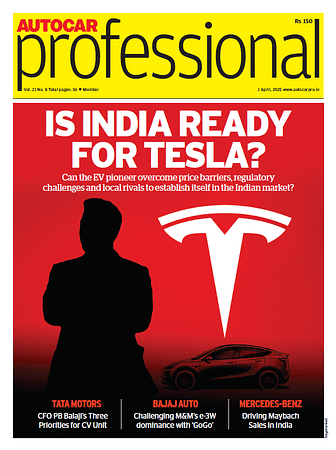Analysis: Was Carlos Ghosn holding Renault-Nissan-Mitsubishi together?
The Alliance has fallen far since the ex-CEO was arrested, raising questions about the strength of its ties.
It's hard to believe that it’s coming up for two years since Carlos Ghosn was arrested for alleged improprieties in his running of Nissan. Harder still to believe just how far Alliance partners Nissan, Renault and Mitsubishi have fallen since he left.
But is their combined nosedive the consequence of outside circumstances or the cause and effect of removing the top man from the job? Could it be that Ghosn’s biggest talent was not so much big-brained forward planning as holding the partnership together at the seams? Was he the glue that bonded this band of misfits?
Never one to play down his significance, Ghosn gave the French press his version of events earlier this summer. “I find the results of Nissan and Renault pathetic,” he surmised. “The two companies are looking inwards. There is no longer any real mix of management between Renault and Nissan, but a distrustful distance.”
When he spoke, Ghosn was reflecting on the fact that Nissan’s and Renault’s share prices had fallen 55% and 70% respectively from when he was locked in a cell in November 2018 through to June 2020. In contrast, General Motors had had a 12% dip and Toyota 15%. There was the world crisis, and there was the Nissan and Renault crisis, and they were of very different magnitudes, he reasoned.
Of course, you may argue that he would say that, given his arrest, the scale of the accusations of wrongdoing and his subsequent flight to dodge what he perceived as a flawed Japanese justice system, but subsequent events have suggested he may have a point. Certainly, the teetering triumvirate’s problems show little signs of slowing. Nissan has recently warned it will lose £3.5 billion (Rs 31,706 crore) this financial year, cautioning it is experiencing its lowest sales in a decade, Renault lost a scarcely survivable £6.5 billion (Rs 58,883 crore) in the first half of this year alone and Mitsubishi is predicting a £2.6 billion (Rs 23,553 crore) loss and its worst sales for 15 years.
The response of all three has been, as Ghosn highlighted, to look within. Nissan has retrenched what it can back to Japan, scaling back its global ambitions. Renault likewise, with a renewed focus on Europe, putting profitability over scale. Mitsubishi, of course, has taken the most radical step of them all, pulling the pin on Europe entirely.
At present, the Alliance shows all the signs of being in limbo, each side so consumed by its own issues that they are unwilling to tackle their collective ones. From the sidelines, it’s hard not to conclude that it would be better to be full on or fall out, with history suggesting the former is the best solution of all. The pity is that the best solution might be what they had all along.
READ MORE
The car industry now: the future of the Renault-Nissan-Mitsubishi Alliance
Renault, Nissan and Mitsubishi agree new Alliance deal
Why Renault, Nissan and Mitsubishi have gone all-in on Alliance
RELATED ARTICLES
Aisin to produce hybrid motor for Mitsubishi in Thailand
The hybrid drive motor and gearbox, will be produced at Aisin Powertrain (Thailand) Co for use in the Mitsubishi XForce ...
GM reports strong Q1 sales in China, demand for EVs and hybrids surges 53%
General Motors and its joint ventures in China have sold more than 442,000 units between January and March 2025.
Volkswagen to invest $580 million in Argentina, plots new pick-up truck for South America
Volkswagen is paving the way for the next generation of mid-size pick-up truck as a successor to the Amarok. The new mod...






 17 Aug 2020
17 Aug 2020
 9663 Views
9663 Views





 Autocar Professional Bureau
Autocar Professional Bureau




